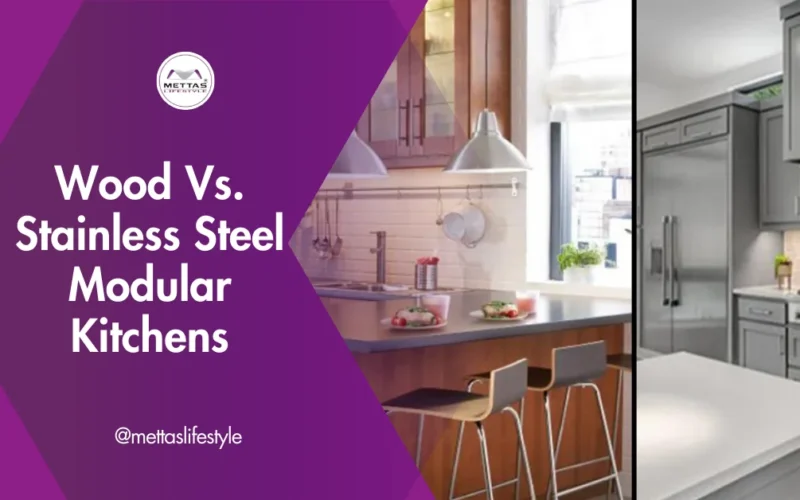

Table of Contents
ToggleIntroduction: Modular vs. Traditional Kitchens
In the ever-evolving realm of kitchen design, the choice between a modular and a traditional kitchen often becomes a pivotal decision for homeowners. Each style boasts its advantages and drawbacks, catering to different preferences and lifestyles. This article delves into the intricacies of modular and traditional kitchens, exploring 10 key points to aid your decision-making process.
1. Design Flexibility
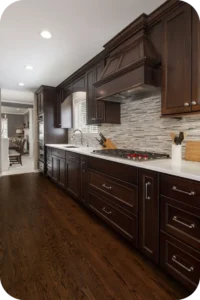
One of the primary differentiators between modular and traditional kitchens is the level of design flexibility they offer. Modular kitchens excel in this aspect, allowing homeowners to mix and match various modules to create a customized and modern look. On the other hand, traditional kitchens often adhere to a more classic and timeless design, limiting customization options.
2. Cost Considerations

Regarding budget constraints, modular kitchens tend to be more cost-effective. The modular approach reduces construction time and labor costs, making it a preferred choice for those looking for an economical yet stylish kitchen. With their intricate details and craftsmanship, traditional kitchens can incur higher expenses.
3. Space Optimization
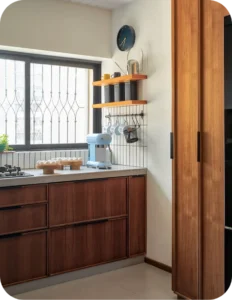
Efficient utilization of space is crucial in any kitchen. Modular kitchens are renowned for their space-saving designs, providing clever storage solutions within individual modules. In contrast, traditional kitchens may require more space due to their elaborate layouts, making them suitable for larger homes.
4. Material Diversity
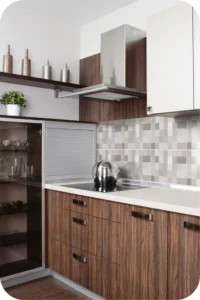
Modular kitchens embrace a wide range of materials, from sleek stainless steel to warm wood finishes. This versatility enables homeowners to align their kitchen aesthetics with their overall interior design. Meanwhile, traditional kitchens often showcase a rich use of natural materials, emphasizing craftsmanship and durability.
5. Installation Speed
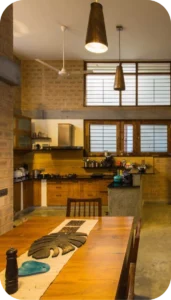
For those with time constraints, the swift installation of a modular kitchen is a significant advantage. Modular components are pre-fabricated, reducing construction time and minimizing disruptions in your daily life. In contrast, traditional kitchens may take longer to install, particularly if intricate details and bespoke elements are involved.
6. Maintenance Requirements
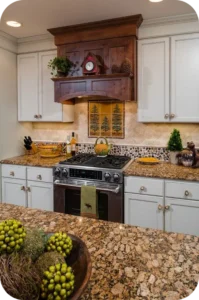
When it comes to maintenance, both styles have their considerations. Modular kitchens are often easier to clean and maintain due to their streamlined design. On the other hand, the intricate details of traditional kitchens may require more meticulous care, especially when using natural materials prone to wear and tear.
7. Resale Value
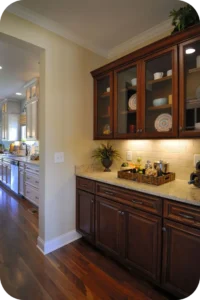
Considering the long-term investment, homeowners often contemplate the resale value of their kitchens. A well-designed modular kitchen can enhance the overall value of a home, appealing to a broader audience. Meanwhile, the timeless appeal of a traditional kitchen can also be a selling point for those who appreciate classic design aesthetics.
8. Energy Efficiency
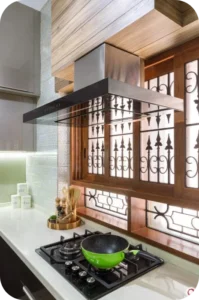
In the era of sustainable living, energy efficiency is a crucial factor. Modular kitchens, with their modern appliances and streamlined designs, often integrate energy-efficient solutions seamlessly. Traditional kitchens, while not inherently less energy-efficient, may require additional considerations to align with eco-friendly practices.
9. Personalization Opportunities
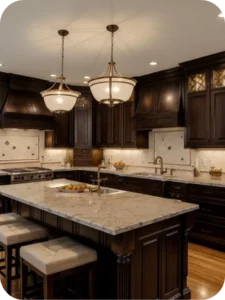
Personalizing your kitchen is a key consideration for many homeowners. Modular kitchens provide ample opportunities for personalization through the selection of modules, finishes, and accessories. On the contrary, traditional kitchens may limit personalization options, emphasizing a more standardized and classic look.
10. Adaptability to Trends
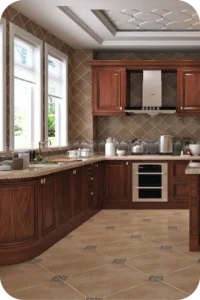
Home design trends evolve, and your kitchen should be adaptable. Modular kitchens, with their contemporary designs, are inherently more adaptable to changing trends. In contrast, traditional kitchens may require more extensive renovations to stay current with evolving design preferences.
Conclusion
Choosing between a modular and a traditional kitchen ultimately boils down to personal preferences, lifestyle, and budget considerations. While modular kitchens offer modernity and cost efficiency, traditional kitchens exude timeless elegance and craftsmanship. Consider your unique needs, and make a decision that aligns with both functionality and aesthetics.
Have questions about your next renovation project? We’ve got answers. Let’s do this together.
Follow House Beautiful on Instagram.
FAQs
Traditional kitchens often incur higher expenses due to craftsmanship and intricate details, while modular kitchens are more cost-effective.
Yes, modular kitchens are known for their swift installation, making them a convenient choice for those with time constraints.
While not inherently less energy-efficient, traditional kitchens may require additional considerations to align with eco-friendly practices.
Absolutely, modular kitchens provide extensive customization options through the selection of modules, finishes, and accessories.
Both modular and traditional kitchens can enhance the resale value of a home, appealing to different buyer preferences.


